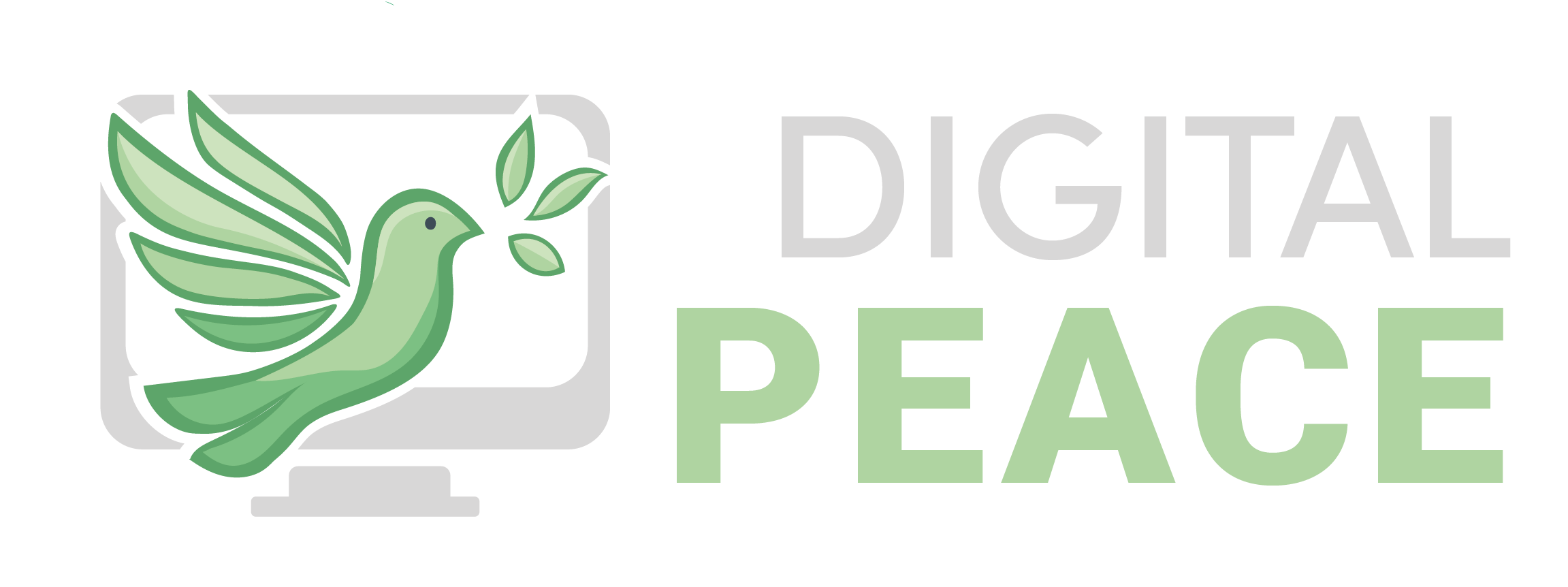I remember a moment from 2018 vividly. It was the first time I truly realized the effect that social media was having on my emotional wellbeing. After scrolling through Twitter, I closed the app, and only then did I realize how angry I had become.
Chances are, many of you have experienced something similar. Maybe after reading a new Trump statement. Or, if you lean more conservative, perhaps after seeing the latest liberal outrage trending online.
I began noticing it in others, too. Political discussions were starting to feel like personal attacks. Since then, awareness of this dynamic has grown. By now, it’s widely visible how emotionally charged our social discourse has become – how easily conversations turn into all-or-nothing thinking, into rigid divisions of us versus them, right versus wrong, leaving little space for nuance, reflection, or curiosity.
Disinformation has become a hot topic in recent years. We now know that emotional manipulation is deliberately cultivated, often personalised with the help of Big Data, algorithmically amplified, and delivered directly into our consciousness through feeds designed to provoke specific reactions.
Yet this dynamic is still too often discussed under the narrow umbrella of misinformation. As if the problem were simply about facts being wrong. But the real issue runs deeper: it’s about how digital platforms exploit our emotions – shaping what we feel, not just what we think. And while efforts to fact-check or debunk are important, they overlook the more fundamental challenge: building emotional resilience in a system built to keep us outraged.
While emotional manipulation has become the primary business model of digital platforms, the ability to recognise, understand, and regulate our emotional responses is no longer just a personal skill, but rather has become a democratic imperative. As we grapple with rising polarisation, declining trust in institutions, and the erosion of shared truth, emotional intelligence emerges not as a nice-to-have soft skill, but as an essential capacity for democratic participation in the digital age.
This article sets out to explore a critical question: What if the real threat to democracy lies not only in misinformation, but in our emotional vulnerability to it?
Emotional Warfare: The Tactics Designed to Divide
Understanding emotional manipulation requires recognising that what we’re experiencing isn’t random or accidental, it’s the result of sophisticated information and cognitive warfare tactics designed to fragment democratic societies. These tactics operate on a simple principle: divided people are easier to control than united people, and emotional manipulation is the most efficient way to create and maintain division.
The primary weapon in this arsenal is what researchers call affective polarisation: the process by which political disagreements become emotional hostilities. 1 Unlike traditional political differences, which focus on policy disagreements, affective polarisation targets our feelings about other groups, making political opponents seem not just wrong but fundamentally threatening. This emotional dimension transforms political discourse from a debate about ideas into a battle for survival, making compromise and democratic deliberation nearly impossible.
The tactics are remarkably consistent across contexts:
Fear amplification involves the systematic exaggeration of threats, whether from migration, economic change, or cultural shifts. Content designed to trigger fear spreads faster and more widely than balanced information, creating cascading cycles of anxiety that make rational policy discussion difficult. 2
Anger cultivation works by identifying existing frustrations and amplifying them through selective presentation of information that confirms people’s worst suspicions about their political opponents.
Perhaps most alarmingly, empathy erosion involves the systematic dehumanisation of political opponents through language and imagery that makes them seem less worthy of moral consideration. When people are consistently exposed to content that portrays their political opponents as evil, stupid, or dangerous, the emotional foundation for democratic compromise, which is the recognition that opponents are fellow citizens with legitimate concerns, begins to crumble.
These tactics are particularly effective because they exploit fundamental features of human psychology. Our brains evolved to prioritise emotional information over analytical information, especially when we perceive threats to our social group.3 In the ancestral environment, this emotional prioritisation helped humans navigate genuine dangers. Yet, in the digital environment, it makes us vulnerable to manipulation by actors who understand how to trigger our emotional responses for their own purposes.
The effectiveness of emotional warfare tactics helps explain why traditional approaches to combating misinformation such as fact-checking, media literacy, and debunking, have proven insufficient. When people are in heightened emotional states, they’re less likely to engage in the careful analytical thinking that fact-checking requires. Emotional manipulation creates cognitive conditions that make rational discourse more difficult, not just because people have access to false information, but because they’re in emotional states that prioritise tribal loyalty over truth-seeking.
Meanwhile, emotional warfare strategies have become a global phenomenon with coordinated campaigns active in at least 81 countries, targeting the emotional foundations of democratic culture: trust, empathy, and the belief in good-faith dialogue 4
The Democratic Cost: When Emotions Undermine Civic Discourse
The systematic manipulation of emotions doesn’t just affect individual well-being, it strikes at the heart of democratic governance itself. Democracy depends on citizens’ capacity to engage in reasoned deliberation about complex issues, to consider multiple perspectives, and to find common ground despite disagreement. However, when emotional manipulation becomes the dominant mode of political communication, these democratic capacities begin to decline.
The evidence for this democratic degradation is mounting. Studies show that heavy social media use is associated with increased risk of depression, anxiety, loneliness, and social isolation.5 But the implications extend beyond individual mental health to collective democratic health. When citizens are consistently in states of emotional distress, they’re less likely to engage in the kind of patient, nuanced thinking that democratic decision-making requires.
As citizens are constantly exposed to content designed to provoke outrage, fear, or contempt for their fellow citizens, several democratic capacities become compromised. Perspective-taking, the ability to understand how issues look from different viewpoints becomes more difficult when other perspectives are consistently presented as threats rather than legitimate alternatives. Compromise becomes nearly impossible when political opponents are viewed not as fellow citizens with different priorities, but as existential enemies. Collective problem-solving suffers when emotional manipulation creates affective polarisation. When people dislike their political opponents as individuals, they’re less willing to work together on shared challenges, even when cooperation would benefit everyone involved.
Perhaps most concerning, trust in democratic institutions erodes when emotional manipulation creates the impression that democratic processes are fundamentally corrupt or illegitimate. When people are consistently exposed to content designed to provoke cynicism about democratic governance, they become less likely to participate in democratic processes and more susceptible to authoritarian alternatives that promise simple solutions to complex problems.
The mental health implications compound these democratic costs. Research shows that adults who frequently post on social media are at higher risk of developing mental health problems than those who passively consume content. 6 This creates a vicious cycle where the most emotionally vulnerable citizens become the most active in spreading emotionally manipulative content, amplifying the very systems that are harming their well-being.
The result is what we might call “democratic emotional exhaustion”, a state where citizens are so overwhelmed by artificially amplified emotions that they withdraw from civic engagement altogether. When democratic participation becomes synonymous with emotional distress, democracy loses the engaged citizenry it needs to function effectively.
Emotional Intelligence as a Civic Skill: Reclaiming Democratic Discourse
If emotional manipulation represents a threat to democratic governance, then emotional intelligence or emotional resilience represents a form of democratic resistance. But this isn’t the soft-skills version of emotional intelligence taught in corporate workshops. This is emotional intelligence as a civic capacity, the ability to recognise, understand, and regulate emotional responses in ways that strengthen rather than undermine democratic participation.
Research in political psychology reveals that individuals with higher emotional intelligence can regulate their emotions during political debates, preventing heated exchanges that shut down productive dialogue. 7 This capacity for emotional regulation doesn’t mean suppressing emotions or pretending they don’t matter. Instead, it means developing the ability to feel emotions without being controlled by them, to recognise when emotions are being artificially amplified, and to choose responses that serve democratic rather than manipulative purposes.
The concept of emotional intelligence as a civic skill builds on decades of research showing that emotions play a central role in political decision-making. 8 Citizens don’t make political choices through pure rational calculation; they make them through complex interactions between emotional responses and analytical thinking. The question isn’t whether emotions should influence political choices, but whether those emotions will be authentic expressions of citizens’ values and experiences, or artificial products of manipulative systems.
Consider what emotionally intelligent democratic participation might look like in practice. Emotional awareness involves recognising when content is designed to provoke specific emotional responses. This means asking questions like: Why am I feeling this way? What is this content trying to make me feel? Who benefits when I feel this emotion? In this context seemingly abstract philosophical questions are becoming practical tools for navigating a media environment designed to manipulate emotional responses.
Emotional regulation in democratic contexts means developing the capacity to pause between emotional stimulus and political response. This might involve taking time to research issues before sharing content, seeking out perspectives that challenge initial emotional reactions, or simply waiting until emotional intensity subsides before making important political decisions. Research shows that mindfulness-based approaches to emotion regulation can reduce the negative effects of political polarisation,9 suggesting that contemplative practices have direct political benefits.
Empathy cultivation represents perhaps the most important civic application of emotional intelligence. In a media environment designed to erode empathy for political opponents, the deliberate cultivation of empathy becomes a form of democratic resistance. This doesn’t mean agreeing with all political perspectives, but it does mean maintaining the recognition that political opponents are fellow human beings with legitimate concerns, even when those concerns lead to different policy conclusions.
The global implications of emotional intelligence as a civic skill are profound. In 2019, the Berlin Democracy Conference highlighted major knowledge gaps in this area, among them, the question: “What role do emotions play in shaping anti-democratic behavior, and how can democrats become more empathic?” 10 This question reflects a growing recognition that the future of democratic governance may depend not just on institutional reforms or policy changes, but on citizens’ capacity to engage emotionally with democratic processes in healthy rather than destructive ways.
Emotional intelligence as a civic skill also has implications for how we understand democratic education. Traditional civic education focuses on teaching citizens about governmental structures, voting procedures, and policy issues. Emotional civic education would focus on teaching citizens how to navigate the emotional dimensions of political life, how to recognise manipulation, regulate responses, and engage empathetically with fellow citizens across political differences.
This approach recognises that democracy is not just a political system but an emotional culture: a set of shared practices for managing the inevitable conflicts that arise in diverse societies. When that emotional culture is healthy, democracy can thrive even amid significant disagreement. But when that emotional culture is manipulated or degraded, democracy becomes vulnerable to authoritarian alternatives that promise to eliminate the emotional complexity of democratic life.
Institutional Responses: Building Emotional Resilience
While individual emotional intelligence is essential, the scale and sophistication of emotional manipulation require coordinated institutional responses that can match the systemic nature of the challenge. This means moving beyond individual self-help approaches to develop collective strategies for building emotional resilience across democratic societies.
Educational institutions represent the most obvious starting point for institutional intervention. But this isn’t about adding emotional intelligence to existing curricula as an afterthought. It’s about fundamentally reimagining civic education to include emotional literacy as a core democratic skill. Students need to learn not just how governments work, but how their emotions work, how to recognise when they’re being manipulated, how to regulate emotional responses to political content, and how to engage empathetically with people who hold different political views.
Research suggests that effective emotional resilience education goes beyond simple awareness-raising. Programs that build capacity to resist manipulation emotionally and mentally need to include practical training in recognising emotional manipulation techniques, understanding the business models that profit from emotional provocation, and developing personal practices for emotional regulation. 11
Media organisations also have a crucial role to play in building rather than undermining emotional resilience. This means moving beyond the traditional journalistic focus on “objectivity” to embrace what researchers call “emotional responsibility”, the recognition that how news is presented emotionally affects democratic discourse as much as what news is presented factually [22]. Media organisations committed to democratic health would prioritise content that informs and empowers citizens rather than content that provokes and divides them.
Technology companies face perhaps the greatest responsibility and the greatest resistance to change. The business models that profit from emotional manipulation are deeply embedded in the architecture of digital platforms, and in the current political landscape, they are further bolstered by deregulatory agendas, often championed by right-wing parties, that protect platform interests and weaken democratic oversight. Meaningful reform would require fundamental changes to how platforms measure success, shifting from engagement metrics that reward emotional provocation to well-being metrics that reward healthy democratic discourse. Algorithmic transparency initiatives would require platforms to disclose how their recommendation systems work. Emotional impact assessments would require platforms to study and report on the emotional effects of their design choices, similar to how environmental impact assessments work for physical infrastructure projects.
Public health institutions are beginning to recognise emotional manipulation as a public health challenge that requires population-level interventions. Just as public health approaches to smoking involved both individual education and systemic changes to advertising, taxation, and social norms, public health approaches to emotional manipulation would combine individual emotional literacy with systemic changes to the information environment.
Democratic institutions themselves need to model emotionally intelligent engagement. This means political leaders who demonstrate emotional regulation in public discourse, legislative processes that create space for empathetic engagement across party lines, and electoral systems that reward coalition-building rather than base mobilisation. Research shows that democratic resilience depends on citizens’ emotional capacity to engage constructively with political differences,12 which means democratic institutions need to create conditions that support rather than undermine that capacity.
International cooperation is essential given the global nature of emotional manipulation campaigns. Just as countries cooperate to address other transnational challenges like climate change or terrorism, they need to cooperate to address the systematic undermining of democratic emotional culture. This might involve shared research on emotional manipulation techniques, coordinated responses to cross-border manipulation campaigns, and international standards for platform accountability.
While these proposals may seem far removed from current political reality, the problems we’re confronting are as well. The scale of systematic emotional manipulation across democratic societies represents an unprecedented challenge that may require equally unprecedented institutional responses.
Personal Practices: Managing Your Emotional Household
While systemic change is essential, individuals don’t need to wait for institutional reform to begin building emotional resilience. The practices that protect against emotional manipulation are surprisingly accessible, though they require the kind of intentional cultivation that our culture of constant connectivity actively discourages.
The foundation of personal emotional resilience is emotional awareness: the capacity to observe your emotional responses as they arise rather than being immediately swept away by them. This begins with what might seem like a simple practice: noticing when you feel unexpectedly strong emotions while consuming digital content. The Twitter logout moment I described earlier represents this kind of awareness in action: the recognition that an emotional state doesn’t necessarily reflect your authentic response to events, but might be the product of manipulative design.
Managing your emotional energy represents another crucial practice. Just as we budget our financial resources and time, we can learn to budget our emotional resources. This means recognising that emotional energy is finite and making conscious choices about how to spend it. Do you want to use your emotional energy being outraged about a politician’s latest tweet, or do you want to save it for showing up fully for your family, your work, or your community? This kind of emotional budgeting requires developing what researchers call “emotional granularity”, e.g. the ability to distinguish between different emotional states and understand their sources.13 This granularity makes it possible to respond appropriately to different emotional challenges rather than being overwhelmed by undifferentiated emotional intensity.
Digital boundaries represent a practical application of emotional budgeting. This might involve designated times for political content consumption, so that exposure to potentially manipulative material happens when you’re emotionally prepared rather than as a constant background presence. It might involve curating your information diet to include sources that inform rather than inflame, or taking regular breaks from social media to allow your emotional system to recalibrate.
Contemplative practices offer particularly powerful tools for building emotional resilience. Research shows that mindfulness-based approaches can reduce the negative effects of political polarisation,14 suggesting that meditation, prayer, or other contemplative practices have direct political benefits. These practices don’t require religious belief or extensive training; they simply involve regularly creating space for reflection rather than reaction.
Reading books represents a surprisingly powerful practice for emotional resilience. Unlike social media content, which is designed for rapid consumption and immediate emotional response, books require sustained attention and deep engagement. The cognitive skills developed through reading, e.g. patience, nuance, perspective-taking directly support the kind of thinking that emotional manipulation is designed to undermine.
Engaging with people who hold different political views in low-stakes, personal contexts can help maintain the empathetic connections that political manipulation seeks to erode. This doesn’t mean seeking out political arguments, but rather maintaining relationships across political differences and remembering that political opponents are complex human beings rather than caricatures.
Physical practices also support emotional resilience. Regular exercise, adequate sleep, and time in nature all contribute to emotional regulation capacity. When people are physically depleted, they’re more vulnerable to emotional manipulation. When they’re physically healthy, they have greater resources for managing emotional challenges.
Perhaps most importantly, building emotional resilience requires recognising that this is ongoing work rather than a one-time achievement. The systems designed to manipulate emotions are constantly evolving, which means the practices for resisting manipulation need to evolve as well. This requires treating emotional resilience as a lifelong learning process rather than a problem to be solved once and forgotten.
Reclaiming Emotional Autonomy: The Path Forward
The systematic manipulation of human emotion for political and commercial gain represents one of the defining challenges of our time. But recognising this challenge also reveals an opportunity: the chance to reclaim emotional autonomy as a foundation for democratic renewal.
Collectively, we need institutional changes that prioritise democratic health over engagement metrics, emotional well-being over profit maximisation, and long-term social cohesion over short-term political advantage. This means educational systems that teach emotional literacy alongside civic knowledge, media organisations that take responsibility for the emotional impact of their content, and technology companies that design for human flourishing rather than addictive engagement.
The stakes of this work extend far beyond individual well-being to the future of democratic governance itself. Democracy depends on citizens’ capacity to engage thoughtfully with complex issues, empathetically with diverse perspectives, and constructively with inevitable disagreements. When emotional manipulation undermines these capacities, democracy becomes vulnerable to authoritarian alternatives that promise to eliminate the emotional complexity of democratic life.
However, this analysis also raises important questions: When does legitimate political communication cross the line into emotional manipulation? Strong emotions about political issues, such as anger at injustice, fear about genuine threats, hope for positive change, can be entirely appropriate responses to real circumstances. The challenge lies not in eliminating emotional responses from politics, but in distinguishing between authentic emotional engagement and artificially amplified manipulation designed to serve others’ interests rather than democratic discourse.
Similarly, what we call “emotional manipulation” might sometimes be simply effective communication that helps people understand the stakes of political decisions. The line between persuasion and manipulation isn’t always clear, and advocates for important causes legitimately need to help people feel the urgency and importance of their issues. The key distinction may be intent and outcome: does the emotional content serve to inform and empower democratic participation, or does it seek to bypass critical thinking and democratic deliberation?
These nuances don’t invalidate the core argument, but they do suggest that solutions must be sophisticated enough to preserve legitimate emotional engagement while building resistance to manipulative practices.
The future of democracy may well depend on our collective ability to feel without being manipulated, to care without being exploited, and to engage emotionally with political life in ways that strengthen rather than undermine our capacity for self-governance. This is the work of emotional resilience: not the elimination of emotion from democratic life, but the cultivation of emotions that serve democratic rather than manipulative purposes.
The choice is ours. We can continue to allow our emotions to be harvested for others’ benefit, or we can reclaim emotional autonomy as a foundation for democratic renewal. The path forward begins with a simple recognition: that moment when we notice our emotions have been manipulated, and choose to respond differently. That moment of awareness is where democracy begins.
References
- Webster, S. W., & Albertson, B. (2022). Emotion and Politics: Noncognitive Psychological Biases in Public Opinion. Annual Review of Political Science, 25(1). https://doi.org/10.1146/annurev-polisci-051120-105353
- Huguet, A., Kaufman, J. H., & Diliberti, M. K. (2024, February 8). Social Media Posts Have Power, and So Do You: Stop the Spread of False and Misleading Information During Voting Season. Www.rand.org. https://www.rand.org/pubs/tools/TLA2909-1.html
- Pliskin, R., & Halperin, E. (2021). The Study of Affective Processes in Political Contexts: Accomplishments and Challenges. Affective Science, 2(4), 345–352. https://doi.org/10.1007/s42761-021-00096-0
- University of Oxford. (2021, January 13). Social media manipulation by political actors an industrial scale problem – Oxford report | University of Oxford. Www.ox.ac.uk; University of Oxford. https://www.ox.ac.uk/news/2021-01-13-social-media-manipulation-political-actors-industrial-scale-problem-oxford-report
- Fassi, L., Ferguson, A. M., Przybylski, A. K., Ford, T. J., & Orben, A. (2025). Social media use in adolescents with and without mental health conditions. Nature Human Behaviour. https://doi.org/10.1038/s41562-025-02134-4
- UCL. (2024, December 5). Regularly posting on social media may worsen mental health in adults. UCL News. https://www.ucl.ac.uk/news/2024/dec/regularly-posting-social-media-may-worsen-mental-health-adults
- Kakarla, U. (2025). Emotional Intelligence in Interpersonal Communication. International Journal of Innovative Scientific Research, 3(1), 111-121. https://ijisr.net/ijisr/article/view/49
- Shah, T. M. (2024). Emotions in Politics: A Review of Contemporary Perspectives and Trends. International Political Science Abstracts, 74(1), 1–14. https://doi.org/10.1177/00208345241232769
- Rahrig, H., Beloboradova, P., Castro, C., Sabet, K., Johnson, M., Pearce, O., & Brown, K. W. (2024). Managing emotions in the age of political polarization: A randomized controlled trial comparing mindfulness to cognitive reappraisal. Research Square. https://doi.org/10.21203/rs.3.rs-3947259/v1
- V-Dem. (2019). Democratic Resilience . V-Dem.net; V-Dem. https://www.v-dem.net/our-work/research-programs/democratic-resilience/
- Cefai, C.; Bartolo P. A.; Cavioni. V; Downes, P.; Strengthening Social and Emotional Education as a core curricular area across the EU. A review of the international evidence, NESET II report, Luxembourg: Publications Office of the European Union, 2018. Doi: 10.2766/664439
- Walz, K., Merten, L., Rosenthal, M., Niedringhaus, J., & Helgest, J. (2025). From latest buzzword to conceptual framework: Unraveling the complexities of democratic resilience. Zeitschrift Für Vergleichende Politikwissenschaft. https://doi.org/10.1007/s12286-024-00618-7
- Bettis, A. H., Burke, T. A., Nesi, J., & Liu, R. T. (2021). Digital Technologies for Emotion-Regulation Assessment and Intervention: A Conceptual Review. Clinical Psychological Science, 10(1), 216770262110119. https://doi.org/10.1177/21677026211011982
- Rahrig, H., Beloboradova, P., Castro, C., Sabet, K., Johnson, M., Pearce, O., & Brown, K. W. (2024). Managing emotions in the age of political polarization: A randomized controlled trial comparing mindfulness to cognitive reappraisal. Research Square. https://doi.org/10.21203/rs.3.rs-3947259/v1







